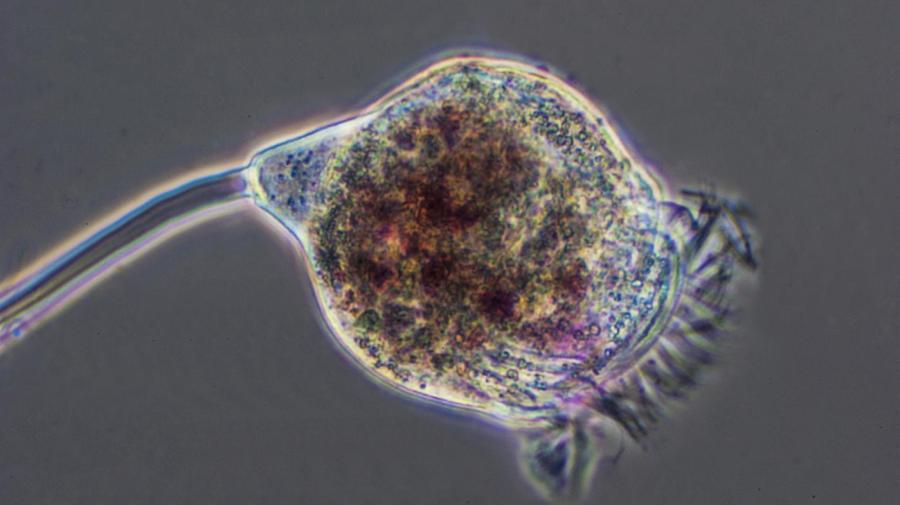What Is the Economic Importance of Protozoans?

Protozoans are an indirect source of food for man, fish and other animals. Protozoa also play an important role in water purification by breaking down organic waste substances in the water. Prospectors use the skeletal deposits of marine protozoans to pin point the location of oil. Protozoans also cause malaria, an infection that kills and weakens millions of people every year, affecting their ability to work.
Protozoans control the population of soil bacteria by feeding on them. By regulating bacterial populations, protozoans ensure that they are maintained in the active growing phase. This increases the rate at which soil bacteria break down dead organic matter. Protozoans also excrete phosphorus and nitrogen in the form of ammonium and orthophosphate. This metabolic excretion helps enrich soil and enhance plant growth.
Biologists use protozoans as bio indicators. The presence or absence of specific protozoans in an environment can either indicate ecological disturbance or integrity. Since protozoans absorb and accumulate environmental toxins, they can also be collected and analyzed for the presence of specific toxic substances.
The skeletal deposits of dead marine protozoans become fossilized and converted into important sedimentary rocks. These have been put in a range of commercial uses, such as building stones, filtering agents and abrasives.





